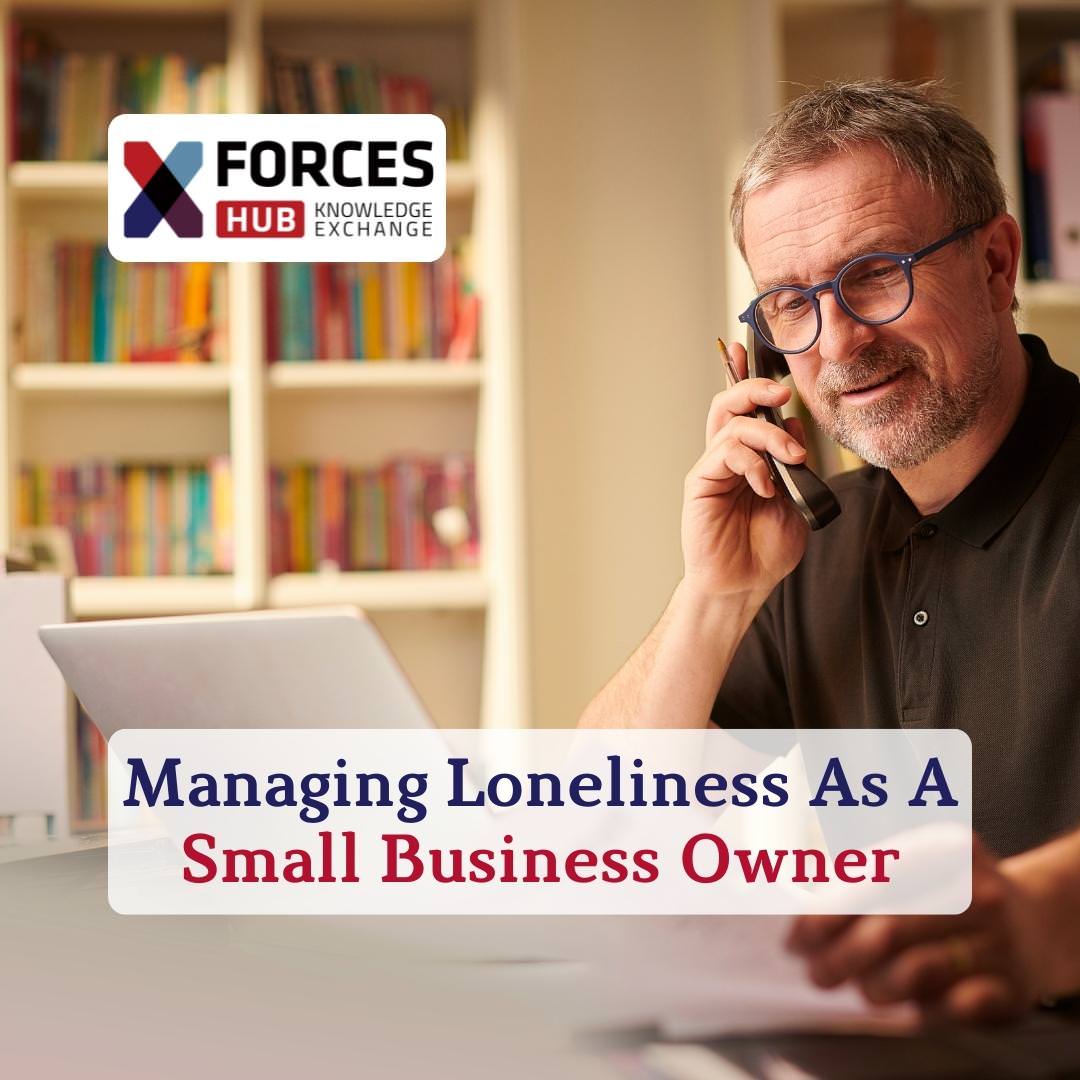
How To Register A Business
September 8, 2022
From Soldiering to Sustainability: Meet the Entrepreneur Helping the Planet One Sock at A Time
September 26, 2022Running a small business can be a lonely place, with the ultimate responsibility for the business and its employees resting generally with you as a small business owner...
Working for yourself can be lonely and isolating, which is why our friends at the Federation of Small Businesses have put together a guide which explains what loneliness is, how you can manage it, and where you can find more support.
There is a difference between being alone and being lonely. Some people are very content with very little interaction with other people, whilst others may not be. Loneliness is often described as the feeling generated when our need for social interaction and relationships is not met. Some people find they still feel lonely despite having a lot of social contacts and this is thought to stem from feelings of not being valued or understood by those they are in contact with.
Loneliness is not in itself a mental illness but it can have a negative effect on mental wellbeing, particularly over long periods. It can lead to mental health conditions such as depression, anxiety, stress, and low self-worth.
It can be caused by life events such as a relationship breakdown, bereavement, or redundancy. Alternatively, personal circumstances may be the cause, for example, mobility problems, ethnic minority, sexual orientation, and health vulnerabilities.
Remember, everyone is different and different things work for different people at different times. These ideas may not suit everyone and it’s important to take things slowly, gradually try things, and avoid putting pressure on yourself.
- Recognise Acknowledge the unwanted feelings, in what circumstances they occur, and how they impact your wellbeing.
- Be kind to yourself Look after your own wellbeing, which might include:
- getting enough sleep
- maintaining a good diet
- avoiding drugs and alcohol
- doing some form of physical activity (ideally outdoors)
- engaging in fulfilling activities such as sports or hobbies
- Connect with others Look for ways to get more social contact with like-minded people, perhaps join a class, look for a volunteering opportunity or attend a networking event.
- Give something back Helping others can give social contact as well as boost self-esteem and give a sense of purpose.
- Avoid comparing with others Social media in particular can be very misleading and contribute to our feelings of loneliness or inadequacy. It’s important to recognise this and if affected, consider taking a break.
- Talk Finding someone you trust to talk to can help to keep things in perspective and receive encouragement. Talking therapies from professionals such as a structured course of counselling or CBT may help you address negative thoughts and feelings and develop coping skills in a confidential supportive environment.
You can find the full FSB guide here.
Our Knowledge Exchange Hub also contains lots of wellbeing advice and information - it's free to join and can be accessed from below:
Running a small business can be a lonely place, with the ultimate responsibility for the business and its employees resting generally with you as a small business owner…
Related posts






























Sign up to our newsletter
Join our Military in Business® Quarterly to stay in the loop with upcoming training & networking events, Ambassador insights, special guest speakers and trending business articles.






